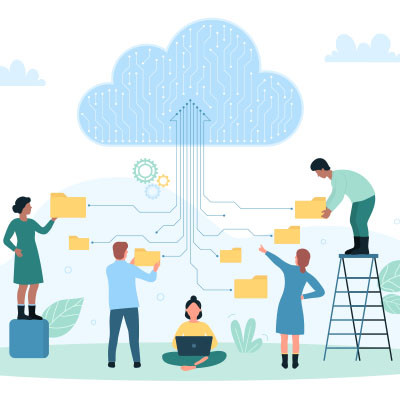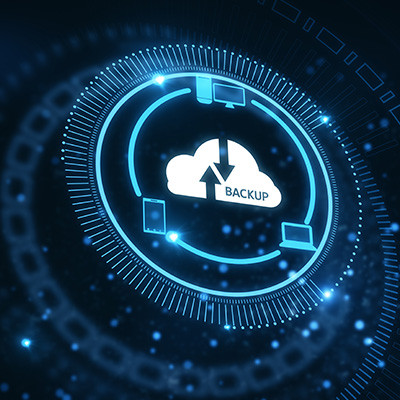The Cyber Attack Response Plan for Lower Mainland Businesses: 53% Don't Have One and Hackers Know It
Every business needs a cyber attack response plan for Lower Mainland businesses that actually works, yet more than half don’t have one. According to CrowdStrike's 2025 State of SMB Cybersecurity Survey, only 47% of small businesses with fewer than 50 employees have a cybersecurity plan in place, leaving 53% completely exposed.
If your company is among them, the next breach attempt isn’t a matter of if. It’s a matter of when. And when it hits, the clock starts ticking.
Cybercriminals are not randomly casting nets across the internet hoping to catch a Fortune 500 company. They’re deliberately targeting businesses like yours. The Verizon 2025 Data Breach Investigations Report confirmed that SMBs are being targeted nearly four times more often than large organizations. The reason is simple. Smaller companies hold valuable data but invest far less in protecting it.
For business owners across the Lower Mainland, from Langley to Burnaby to Surrey, the question is no longer whether your company will face a cyber threat. The question is whether you’ll have a plan ready when it happens.
Why Most Small Businesses Are Flying Blind
A 2025 Guardz SMB Cybersecurity Report found that while 80% of small business owners believe the need for cybersecurity has increased over the past year, only 34% have a formal incident response plan developed with a cybersecurity professional.
That disconnect is a gift to hackers.
Without a cyber attack response plan for Lower Mainland businesses, your team has no roadmap for the critical first hours after a breach. Who do you call first? How do you isolate compromised systems? How do you notify affected clients without creating panic? These are questions that need answers before a crisis, not during one.
The CrowdStrike survey also revealed that 42% of SMBs lack sufficient cybersecurity tools and 46% lack the expertise needed to defend against modern attacks. This means the majority of small businesses aren’t just missing a response plan. They’re missing the foundation to build one.
The stats that should keep you up at night:
- 96% of all SMB breaches fall into just three categories: system intrusion, social engineering, and basic web application attacks, meaning the threats are predictable and preventable with the right plan (Verizon 2025 DBIR)
- 60% of all data breaches involve a human element such as phishing clicks, weak passwords, or social engineering (Verizon 2025 DBIR)
- The average data breach takes 258 days to identify and contain, meaning attackers have roughly eight months of access before they’re detected (IBM Cost of a Data Breach Report 2024)
- 80% of SMBs with a formal incident response plan were able to avoid major damage during an attack (Guardz 2025 SMB Cybersecurity Report)
That last statistic is the most important one. Having a plan doesn’t just reduce risk. It’s the single biggest factor in determining whether your business survives an attack or gets buried by one.
What Happens in the First 24 Hours Without a Plan
Picture this scenario. It’s a Tuesday morning at your office in Surrey. An employee clicks a link in what looks like a routine email from a vendor. Within minutes, ransomware begins encrypting files across your network. Client records, financial data, project files, all locked.
Without a cyber attack response plan for Lower Mainland businesses, here’s what typically happens next: panic. Staff members start making well-intentioned but damaging decisions. Someone reboots a server, destroying forensic evidence. Someone else emails clients from a compromised account, spreading the attack further. Leadership scrambles to find an IT contact while the clock keeps ticking.
The Verizon 2025 DBIR found that ransomware was present in 44% of all breaches analyzed, a notable rise from the prior year. And for SMBs specifically, ransomware was a component of 88% of breaches.
Every minute without a coordinated response increases the damage. It widens the data exposure. It extends the downtime. It multiplies the cost of recovery.
The Real Cost of Having No Response Strategy
The financial consequences of a breach extend far beyond the initial incident. IBM's 2024 Cost of a Data Breach Report found that 70% of breached organizations reported significant or very significant disruption to their operations. Recovery efforts typically extend beyond 100 days, and only 12% of organizations were able to fully recover from a breach.
For small businesses, the impact is proportionally worse. A Hiscox Cyber Readiness Report found that 43% of organizations lost existing customers following a cyberattack. When you’re a 30-person firm in Langley or Abbotsford, losing 43% of your client base is not a setback. It’s an existential threat.
The consequences go beyond lost revenue:
- Regulatory penalties under Canadian privacy laws including PIPEDA
- Loss of client trust that takes years to rebuild
- Increased cyber insurance premiums or loss of coverage entirely
- Operational downtime that halts productivity across every department
The 7 Components of an Effective Cyber Attack Response Plan
Building a cyber attack response plan for Lower Mainland businesses doesn’t require a massive IT department or an unlimited budget. It requires clarity, preparation, and the discipline to put a plan on paper before you need it.
1. Designate Your Incident Response Team
Every business needs to identify who is responsible for what during a cyber incident. This includes an incident commander (typically the business owner or CEO for small companies), an IT lead, a communications point person, and a legal or compliance contact. Everyone should know their role before an incident occurs.
2. Define What Constitutes an Incident
Not every suspicious email is a full-blown breach. Your plan should clearly define the difference between a minor security event and a critical incident that activates your full response protocol. This prevents both underreacting to real threats and overreacting to false alarms.
3. Create an Immediate Containment Protocol
The first priority during any breach is containment. For any incident response plan to work for Lower Mainland companies, it should outline specific steps for isolating affected systems, disabling compromised accounts, and preserving evidence for forensic investigation. The IBM 2024 Cost of a Data Breach Report found that organizations using AI and automation in security operations identified and contained breaches nearly 100 days faster than those without them.
4. Establish a Communication Chain
Who gets notified first? In what order? Through which channels? Your plan should include:
- Internal notification procedures for staff and leadership
- Client communication templates ready for immediate deployment
- Regulatory notification timelines required under PIPEDA
- Media response guidelines if the breach becomes public
5. Document Your Critical Assets and Data
You can’t protect what you haven’t identified. Your plan should include a current inventory of all critical systems, data storage locations, backup protocols, and access credentials. This documentation becomes your recovery roadmap.
6. Partner with a Managed IT Provider Before You Need One
Trying to find a qualified cybersecurity partner during an active breach is like shopping for home insurance while your house is on fire. A proactive managed IT provider should be part of your cyber attack response strategy from day one, providing 24/7 monitoring, rapid incident response, and the expertise your internal team likely doesn’t have.
The CrowdStrike survey found that only 11% of SMBs use AI-powered cybersecurity tools. A separate VikingCloud study revealed that 74% of small business owners self-manage their cybersecurity or rely on an untrained family member or friend. That approach might save money in the short term, but it leaves your business dangerously exposed.
7. Test Your Plan Regularly
A plan that sits in a drawer is not a plan. It’s a wish. IBM's 2024 Cost of a Data Breach Report found that organizations with an incident response team that regularly tested their plan experienced 58% lower breach costs than those that didn’t. Yet among the three-quarters of organizations that had an IR plan, only 63% had a dedicated team and tested it on a regular basis.
Effective testing includes:
- Tabletop exercises at least twice a year simulating realistic attack scenarios
- Verifying that backup restoration actually works before you need it in a crisis
- Reviewing and updating contact lists, access credentials, and vendor agreements
- Debriefing after every test to identify gaps and improve response procedures
Why Lower Mainland Businesses Face Unique Risks
The Lower Mainland's business landscape creates specific cybersecurity challenges that generic advice doesn’t address. The region's concentration of professional services firms, legal offices, construction companies, and accounting practices means a high volume of sensitive client data flows through relatively small organizations every day.
Consider the typical law firm in Langley handling real estate transactions, or the accounting practice in Surrey managing payroll for dozens of construction companies. These businesses process financial records, personal identification documents, and confidential business data on a daily basis. A single breach could expose hundreds of clients simultaneously.
A cyber attack response plan for Lower Mainland businesses needs to account for Canadian regulatory requirements under PIPEDA, provincial privacy considerations, and the reality that many Fraser Valley and Greater Vancouver firms serve clients across multiple industries with varying compliance standards. What works for a tech startup in downtown Vancouver won’t work for a unionized construction firm in Abbotsford. Your plan needs to reflect your specific industry, your specific data, and your specific regulatory obligations.
Additionally, the region's growing reliance on hybrid and remote work arrangements has expanded the attack surface for many local businesses. Employees accessing company systems from home networks, personal devices, and public Wi-Fi connections create vulnerabilities that didn’t exist five years ago. Every unsecured endpoint is another door for an attacker to walk through.
Stop Hoping It Won’t Happen to You
Hope is not a cybersecurity strategy. The data is clear. More than half of small businesses lack a response plan. Attackers know this. They’re counting on it.
Building a cyber attack response plan for Lower Mainland businesses is not about achieving perfect security. Perfect security doesn’t exist. It’s about ensuring that when something goes wrong, your team knows exactly what to do, who to call, and how to minimize the damage.
The businesses that survive cyber attacks are not the ones with the biggest budgets. They’re the ones with the best preparation.
If you don’t have a plan in place today, you’re gambling with everything you have built. And the odds are not in your favor.
Sources:
- CrowdStrike, "2025 State of SMB Cybersecurity Survey" (2025)
- Verizon, "2025 Data Breach Investigations Report" (2025)
- IBM Security / Ponemon Institute, "Cost of a Data Breach Report 2024" (2024)
- Guardz, "2025 SMB Cybersecurity Report" (December 2025)
- Hiscox, "Cyber Readiness Report 2024" (2024)
- VikingCloud, "SMB Cybersecurity Study" (2025)











